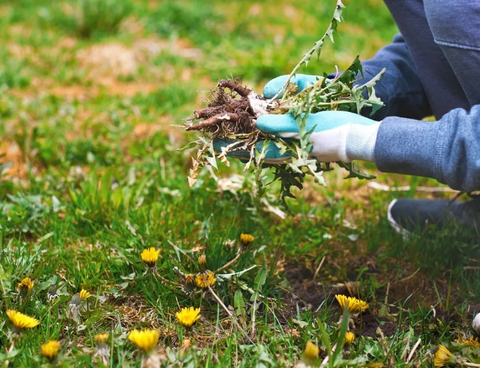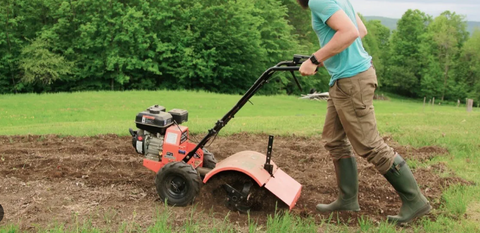Why Garden Together as a Family?
Gardening together as a family is more than just a fun outdoor activity—it's a way to bond, learn, and grow together. Picture this: you, your kids, and maybe even your grandparents, hands in the dirt, sharing laughter and stories as you plant seeds that will one day become beautiful flowers or tasty vegetables. It's a communal effort that teaches cooperation and patience. Plus, there's nothing quite like the pride of watching something you’ve nurtured from a tiny seed grow into a full-fledged plant.

Benefits of Gardening for All Ages
Gardening is a universal activity with benefits for everyone involved. For kids, it's an educational playground where they can learn about plant life cycles, insects, and the environment. Teens might discover a new passion or hobby, and it can be a productive way to get them off their screens. Seniors benefit from the physical exercise and mental stimulation that gardening provides, keeping them active and engaged. For everyone, it’s a great way to relieve stress, soak up some vitamin D, and enjoy the fresh air.
Creating Lasting Memories in the Garden
Gardening with family creates lasting memories that are cherished for years. From the first time a child sees a sprout emerge from the soil to the joy of harvesting a ripe tomato, these moments become part of your family's story. These shared experiences can be passed down through generations, creating a legacy of gardening knowledge and love for nature.
Getting Started with Family Gardening
Choosing a Garden Spot Everyone Will Love
Selecting the perfect spot for your family garden is crucial. Look for a sunny location with good soil and easy access to water. It should be a place where everyone feels comfortable spending time. Consider setting up a few garden benches or a small table where you can sit and enjoy the fruits of your labor. This space will become a family haven, so choose a spot that everyone agrees on.
Planning a Family-Friendly Garden Layout
Designing a garden layout that caters to all family members ensures that everyone feels included. Incorporate wide paths for easy access, and consider raised beds for those who may have trouble bending down. Designate specific areas for different types of plants, such as a section for flowers, a vegetable patch, and a herb garden. This organization helps in teaching kids about different plant types and their needs.
Gardening Projects for Kids
Fun and Simple Gardening Activities for Young Children
Engage young children with fun and simple gardening activities like planting seeds, watering plants, and making garden crafts. Create a sensory garden where they can explore different textures, colors, and scents. Encourage them to paint rocks as garden markers or help build a scarecrow. These activities make gardening interactive and enjoyable for the little ones.
Teaching Kids About Plant Life Cycles
Gardening is a fantastic way to teach kids about the life cycles of plants. Start with seeds, explaining how they need soil, water, and sunlight to grow. Show them how roots develop, how stems push through the soil, and how leaves and flowers eventually form. Use a magnifying glass to look at the details of leaves and flowers up close. This hands-on learning fosters curiosity and a deeper appreciation for nature.
Creating a Kid-Friendly Garden Space
Designate a special garden area just for kids where they can dig, plant, and explore freely. Use brightly colored pots and garden tools to make the space inviting. Plant fast-growing seeds like beans or sunflowers to keep them interested. Adding elements like a fairy garden, a dinosaur garden, or a small sandbox can make the garden a magical place for children.
Teenagers in the Garden
Engaging Teens with Unique Gardening Projects
Teens might not always be keen on gardening, but unique projects can capture their interest. Try involving them in hydroponics or vertical gardening, which combines technology with plant care. Encourage them to design a section of the garden themselves, giving them a sense of ownership and creativity. Projects like building a compost bin or creating a water feature can also appeal to their problem-solving skills.
Incorporating Technology in Teen Gardening Activities
Incorporate technology to make gardening more appealing to tech-savvy teens. Use gardening apps to track plant growth or plan garden layouts. Teens can use their smartphones to document the progress of their plants through photos and videos, creating a digital garden journal. You can even explore using drones for aerial garden views or setting up a weather station to monitor garden conditions.
Encouraging Responsibility and Independence
Gardening teaches teens responsibility and independence. Assign them specific tasks, like watering, weeding, or monitoring plant health. Encourage them to research different plant care techniques and apply what they learn. This responsibility fosters a sense of accomplishment and pride in their work, building confidence and life skills.

Gardening with Seniors
Adapting Gardening Activities for Older Family Members
Gardening can be adapted to suit the needs of older family members. Use raised beds and container gardens to reduce the need for bending and kneeling. Provide lightweight, ergonomic tools that are easier to handle. Focus on low-maintenance plants that don't require intensive care. Creating a comfortable and accessible gardening space ensures that seniors can continue to enjoy this rewarding activity.
Raised Beds and Container Gardens for Accessibility
Raised beds and container gardens are ideal for seniors, offering easier access and reducing physical strain. These gardening methods allow for better control over soil quality and reduce the risk of pests. Arrange raised beds at a comfortable height and use sturdy containers with good drainage. These setups can be placed on patios or balconies, making gardening accessible even in limited spaces.
Benefits of Gardening for Physical and Mental Health
Gardening provides several physical and mental health benefits to elders. It provides gentle exercise, improving strength, flexibility, and mobility. The fresh air and sunlight boost mood and vitamin D levels. Gardening also reduces stress, promotes relaxation, and provides a sense of purpose and accomplishment. It's a therapeutic activity that enhances overall well-being.
Creative Gardening Projects
DIY Garden Art and Crafts
Get creative with DIY garden art and crafts. Paint pots, create garden markers, or make wind chimes from recycled materials. Use natural items like stones, twigs, and leaves to create unique art pieces. These projects add a personal touch to the garden and allow for artistic expression.
Building Birdhouses and Insect Hotels
Build birdhouses and insect hotels to attract beneficial wildlife to your garden. Use simple materials like wood, bamboo, and twigs to create habitats for birds, bees, and other insects. Decorate the structures with paint or natural elements. These projects not only support local wildlife but also enhance the biodiversity of your garden.
Designing Themed Gardens (Fairy Gardens, Dinosaur Gardens)
Design themed gardens to spark imagination and creativity. Create a fairy garden with tiny houses, pathways, and miniature plants. Set up a dinosaur garden with prehistoric plants and toy dinosaurs. These themed gardens provide a magical space for children to play and explore, making gardening a delightful adventure.
Cooking and Preserving Garden Produce
Family Cooking Sessions with Fresh Ingredients
Use garden-fresh ingredients in family cooking sessions. Make salads with freshly picked greens, toss pasta with homegrown herbs, or create pizzas topped with garden veggies. Cooking together not only promotes healthy eating but also allows for creativity in the kitchen. Kids can see the direct connection between the garden and the dinner table.
Making Homemade Jams and Preserves
Preserve the flavors of the garden by making homemade jams and preserves. Use ripe fruits like strawberries, raspberries, and peaches to create delicious spreads. Involve kids in the jam-making process, from picking fruit to stirring the pot. These homemade treats can be enjoyed year-round and make great gifts for friends and neighbors.
Teaching Kids About Food Preservation
Teach kids about food preservation techniques like canning, drying, and freezing. Show them how to preserve excess produce for use during the off-season. Make pickles from cucumbers, and dry herbs for winter use, or freeze berries for smoothies. Understanding food preservation promotes resourcefulness and reduces food waste.

Garden-Based Games and Activities
Scavenger Hunts in the Garden
Organize scavenger hunts in the garden to make learning fun. Create lists of items for kids to find, such as specific plants, garden tools, or wildlife. Use clues to guide them around the garden and encourage teamwork. Scavenger hunts promote observation skills and knowledge of the garden environment.
Garden-themed Board Games and Puzzles
Play garden-themed board games and puzzles as a family. Choose games that teach about plants, gardening tasks, or nature facts. Puzzle together images of beautiful gardens or colorful flowers. These games enhance family bonding while reinforcing gardening knowledge in an entertaining way.
Outdoor Garden Yoga and Meditation
Practice yoga and meditation in the garden for relaxation and mindfulness. Set up a peaceful corner with yoga mats or cushions surrounded by plants. Guide family members through gentle stretches, deep breathing exercises, and moments of quiet reflection. Connecting with nature enhances the benefits of yoga and meditation practices.
Gardening and Family Health
Physical Benefits of Gardening for All Ages
Gardening provides physical exercise for all ages. Digging, planting, and weeding are excellent workouts that improve strength, flexibility, and endurance. Engaging in outdoor activities boosts vitamin D levels and promotes overall well-being. Regular gardening sessions contribute to a healthy, active lifestyle for the whole family.
Mental Health and Stress Relief in the Garden
Spending time in the garden offers mental health benefits such as stress relief and relaxation. The sights, sounds, and scents of nature have a calming effect on the mind. Gardening activities like pruning, watering, and harvesting promote mindfulness and focus. It's a therapeutic escape from daily pressures and technology distractions.
Encouraging Healthy Eating Habits
Gardening encourages healthy eating habits by promoting the consumption of fresh fruits, vegetables, and herbs. Kids are more likely to try new foods when they've grown them themselves. Involve them in meal planning and cooking using garden produce. Cultivating a love for fresh, nutritious foods starts in the garden.
Incorporating Pets into the Garden
Pet-Friendly Plants and Garden Designs
Design a pet-friendly garden with safe plants and layouts for furry companions. Choose non-toxic plants that pets can sniff, explore, and even nibble on without harm. Create designated play areas for pets with durable surfaces and pet-friendly toys. Consider pet-friendly fencing or barriers to keep animals safe and contained.
Creating a Pet Play Area in the Garden
Designate a pet play area in the garden where dogs and cats can romp and play safely. Include features like agility courses, tunnels, and obstacles for active pets. Provide water stations and shady spots for pets to rest. Incorporate pet-friendly landscaping elements like rocks, logs, and grass patches for pets to enjoy. This dedicated space allows pets to burn off energy while exploring the outdoor environment safely.
Take time to celebrate your family's gardening achievements and successes. Host a garden party, create a photo collage, or make a scrapbook showcasing your garden journey. Acknowledge everyone's contributions and efforts in making the garden thrive. Celebrating achievements reinforces a sense of accomplishment and encourages continued passion for gardening.
Embrace the future with enthusiasm and anticipation for many more seasons of gardening together as a family. Cultivate optimism, resilience, and adaptability in the garden and in life. Cherish each moment spent nurturing plants, exploring nature, and creating memories with loved ones. The garden is a place of joy, connection, and endless possibilities.









